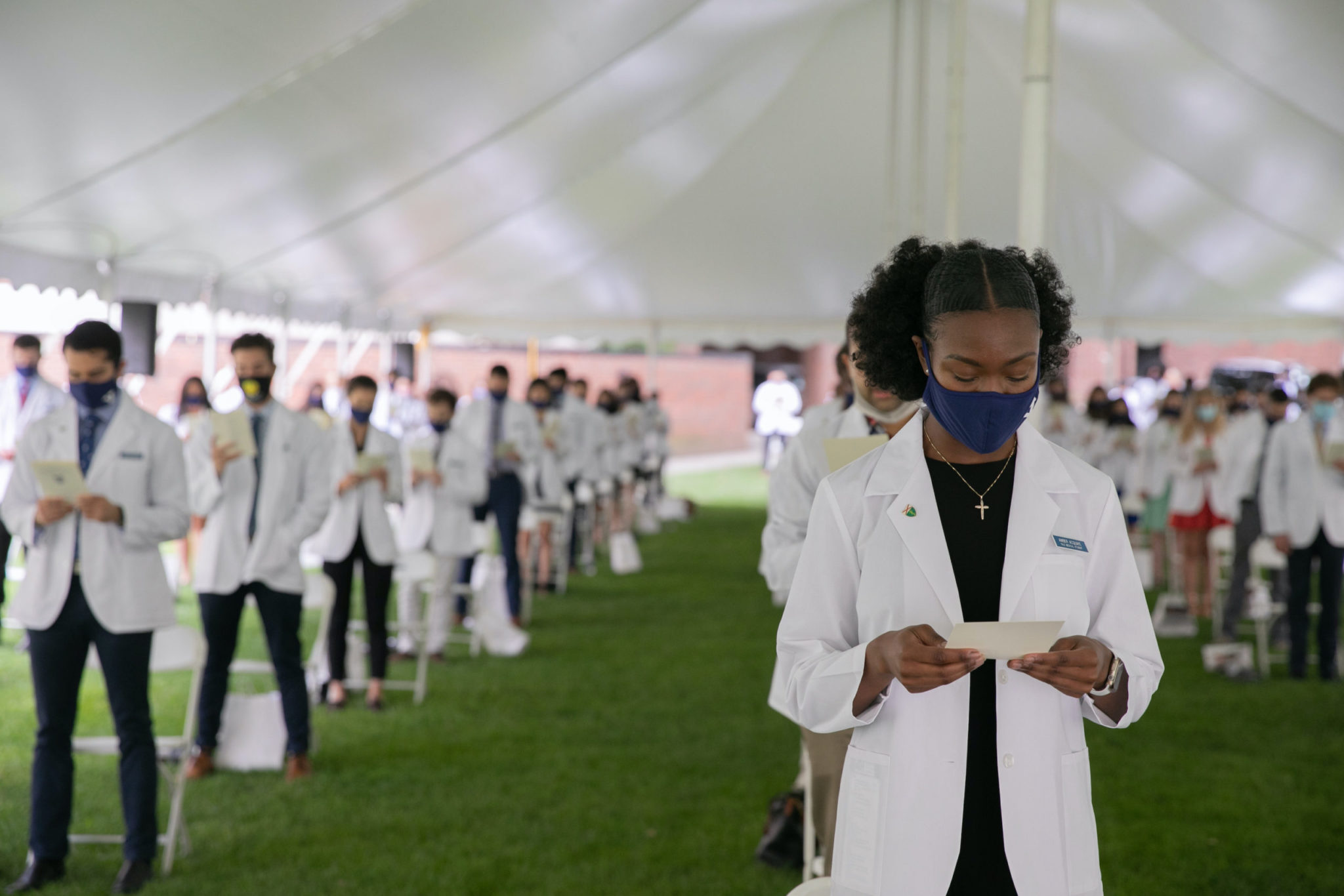
Courtesy of Anthony DeCarlo
As the coronavirus continues to infect hundreds of thousands of Americans, students and professors at the Yale School of Medicine adapt to remote learning and reckon with the meaning of working in medicine during a pandemic.
With a hybrid learning model, medical education at YSM looks different this year — from virtual white coat ceremonies to an increased focus on telemedicine. Students in the first two pre-clinical years of medical school are attending hybrid classes, and students in the clinical years are able to participate in clinical rotations in person, according to School of Medicine Dean Nancy Brown.
“After the first year students completed their introduction to professionalism course on line, they gathered in person, socially distanced, for the White Coat Ceremony,” Brown wrote in a statement to the News.
The ceremony — which symbolizes the students’ formal entry into the field of medicine — is one of many rites of passage for medical students that had to be adapted to the pandemic. In April, the graduating class’s “Match Day” event was held over Zoom, as opposed to the traditional Harkness ballroom, located on the School’s campus.
Students are trying to make the most out of the situation and are learning skills unique to the current global environment.
“I think the main experience we are missing out on is clinical skills training, but we have been making up for lost hospital time through focusing on things like telemedicine,” Kerrie Greene MED ’27 wrote in an email to the News.
Deputy Dean for Education Richard Belitsky also mentioned the new focus on telehealth at the School of Medicine. According to Belitskt, the practice has become increasingly common, with the Yale New Haven Hospital investing in the new technology amid pandemic struggles.
Students also have access to many opportunities that would not have been available to them without the pandemic. Belitsky explained that many of them are also engaged in coronavirus research projects, such as working on “integrating and critically evaluating evolving information about COVID-19.” Greene also feels that her education is taking place in a radically different context than in any other period in time, giving her a truly distinct experience from past and future medical students.
“It is … very unique since most current healthcare providers did not train during a global pandemic, so I am grateful to bring this perspective to my practice in the future,” Greene wrote.
Still, there aremany downsides to their unique learning situation.
As a second-year medical student in the combined MD/PhD Program, Greene attends three lab courses in person but watches lectures remotely.
“Currently, labs are limiting numbers and having members work in shifts,” Greene wrote. “Hopefully, by the time my PhD starts next fall some of these restrictions may be lifted.”
According to Brown, by staying in New Haven for hybrid classes, students also have access to many in-person opportunities — such as shadowing doctors, building relationships with research mentors and volunteering at the Free Haven Clinic.
The School of Medicine had to make many changes to its teaching format to ensure that classes would continue in spite of the public health crisis.
In an editorial posted to the School of Medicine’s website, Associate Dean for Student Affairs Nancy Angoff described how Associate Dean for Curriculum Michael Schwartz had overseen “the training of over a hundred of faculty at the School of Medicine to teach online, as well as dealing with other issues that emerge when students can’t gather on campus.”
With regards to the altered teaching format, Belitsky emphasized the importance of open lines of feedback between students and staff in order to make the transition work.
“[The] key to the success of shifting much of the curriculum online has been continual communication with students and faculty about changes we had to make and why they were necessary,” he wrote in an email to the News. “The collaboration and dedication of our faculty and staff to creatively address any problems, and more generally to support the education of our students, also has been critical to its success.”
Yale School of Medicine is located at 333 Cedar Street.
Beatriz Horta | beatriz.horta@yale.edu







